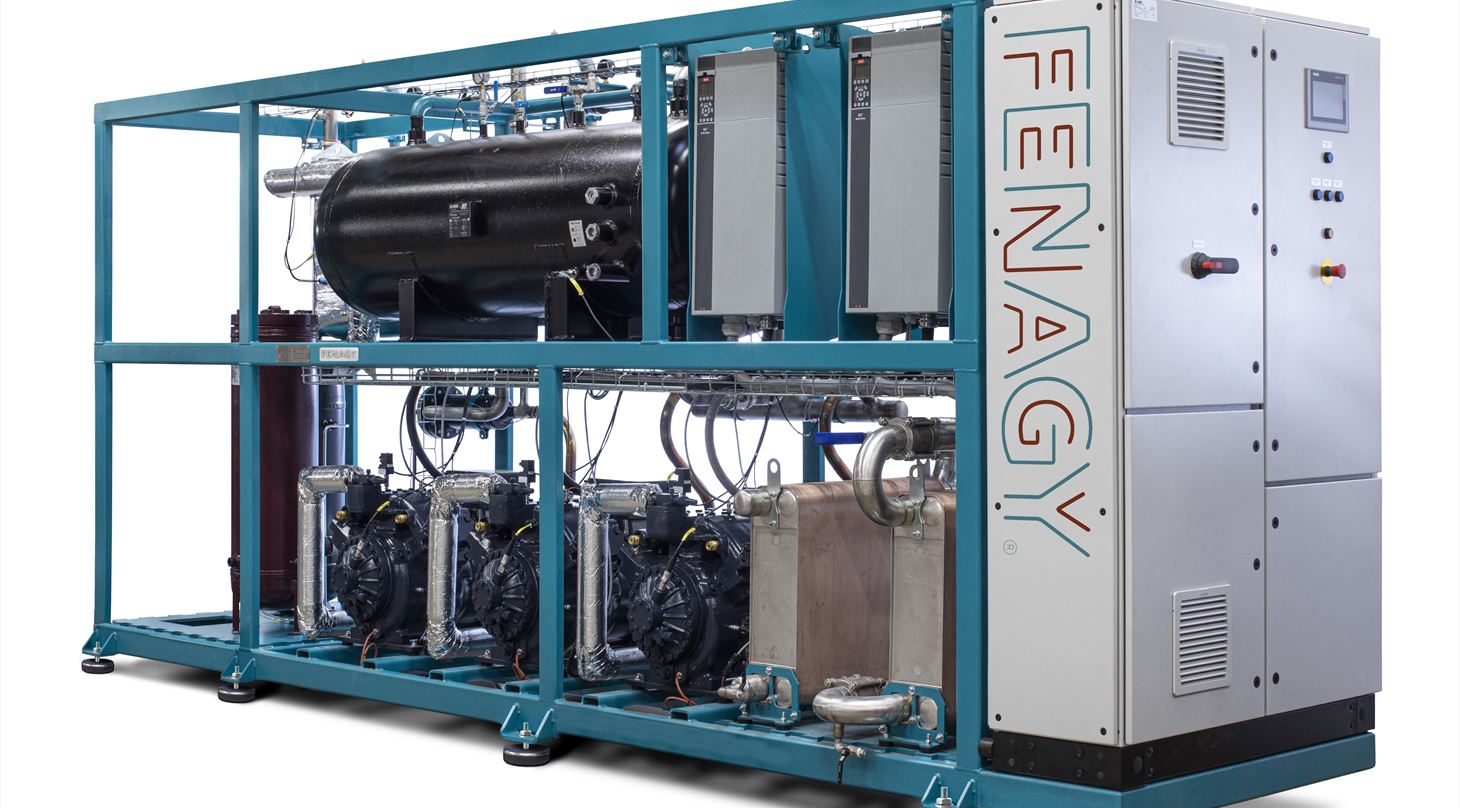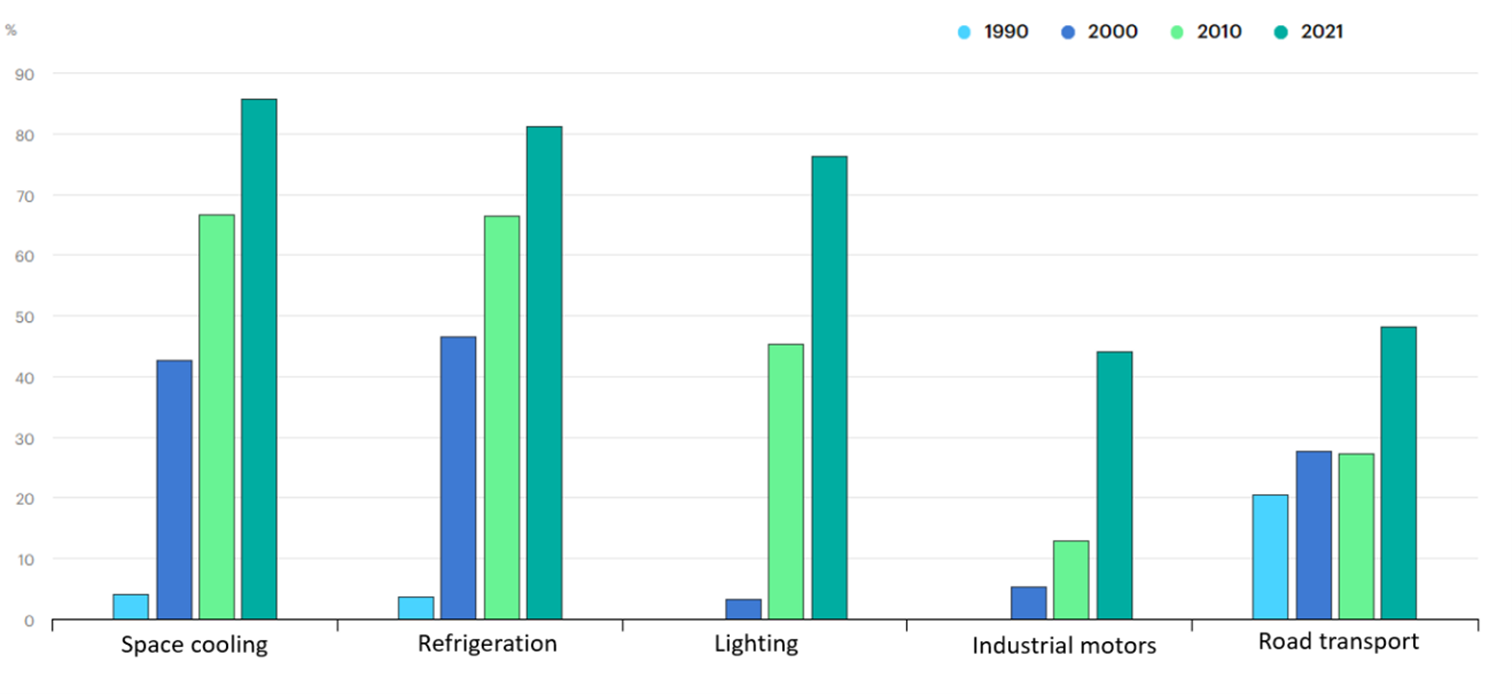
Future Optimized Reversible CO2 Chiller and Heat Pump
Project start January 2022. Expected completion date January 2025.
Purpose of project
Heating and cooling is responsible for approximately 50 % of the EU final energy demand. Therefore, it is crucial to address this challenge in order to accomplish climate neutrality in 2050 on both a national level in Denmark and on a European level.
Furthermore, the phase out of fossil fuels in the area of industrial heating is acknowledged by the European Commission to be a main challenge in the transition of our energy system, and this project is considered to be an important part of the solution.

Figure 1: Global energy use covered by mandatory standards or comparative labels for key end uses, 1990-2021.
Figure 1 shows the previous energy consumption for the IEA countries – i.e., all the European countries and the other largest countries in the world. As can be seen from the figure, the energy demand for heating (space cooling) and refrigeration has increased considerably over the last decades. In order to reduce the energy consumption in the future and to increase the energy efficiency, it is very important that the energy used for cooling is not ‘released off to the birds’, which often happens today, but that it instead is used for heating. For example, this can be done by using the heat pumps that will be developed in this project.
Project objectives
The main goal of the project is to develop a novel industrial factory-built reversible chiller and heat pump unit based on the environmentally friendly and safe natural refrigerant CO2.
By combining the increased energy efficiency, reuse of waste heat and electrification, this project addresses the important challenge of delivering clean and energy efficient heating and cooling for industrial processes and large buildings by combining a chiller and a heating system in one single unit and compensating for mismatch.
The developed unit thus replaces two systems as it is today, i.e., the equipment used for cooling purposes (chiller) and the equipment used for heating purposes (mostly boiler). This concept gives a superb, combined efficiency and a price competitive solution.
The target markets are both the air conditioning and industrial process markets – areas with a huge potential for energy savings and areas playing a potential key role in the green transition.
Activities
The project is divided into the following subtasks:
- Knowledge gathering
- Customization and commercial targets
- System design
- IoT (cloud-based solutions)
- Functional analyses
- Functional analyses of system at end user
- Dissemination.
Participants
- Danish Technological Institute (Project manager – Jóhannes Kristófersson)
- Fenagy
- Bitzer Electronics A/S
- Danfoss
- Güntner
- Elcon
- CO2X
- DTU Mechanical Engineering
- Kelvion
- Arla Foods.
Funding
The project is funded by EUDP.